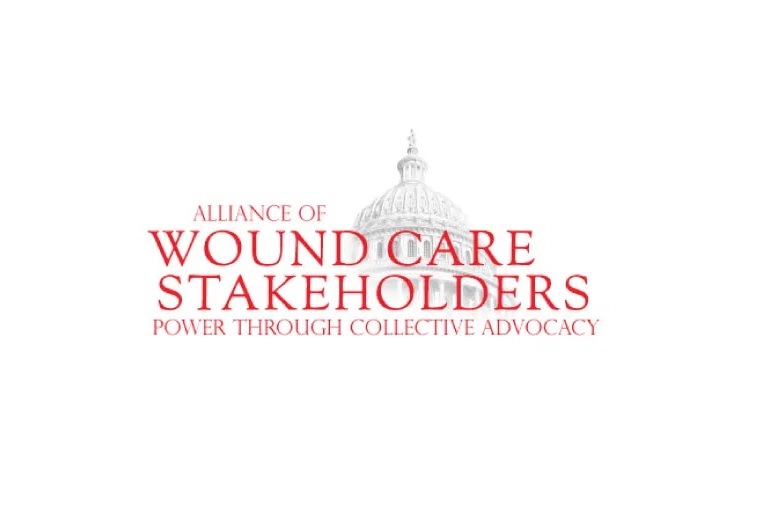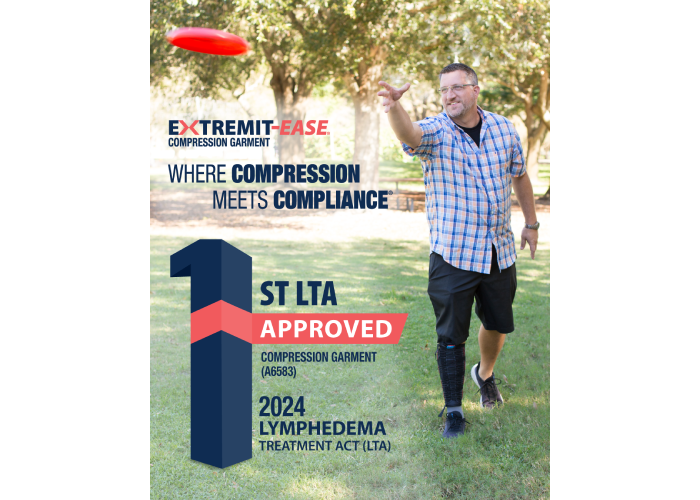What Wound Care Advocacy Achieved in 2023 and Works Toward in 2024
February 23, 2024
The wound care community had an exciting and impactful 2023 on the advocacy front. The power of collaborative action and a collective voice resulted in two major advocacy successes, advocated by the Alliance of Wound Care Stakeholders, protecting patient access to key wound care services.
Collective Advocacy Protected Patient Access to HBOT
When the Centers for Medicare and Medicaid Services (CMS) published its final 2024 Hospital Outpatient Prospective Payment System regulations in November 2023, CMS—without advance notice or explanation—implemented a 40% cut to the payment rate for hyperbaric oxygen therapy (HBOT) ($125.07 to $73.64 per 30-minute segment). These payment cuts would have led to potential site closures and a reduction in the availability of hyperbaric medicine services for Medicare patients.
The Alliance quickly identified the issue and notified CMS of what we believed was an error requiring a technical correction. CMS staff agreed to investigate the issue. Additionally, in collaboration with a large group of wound care/HBOT stakeholders, the Alliance submitted formal written comments, and cosigned a letter with 1,600+ stakeholders (clinical associations, hospitals/hospital systems, wound clinics, provider groups, manufacturers, individual clinicians). The Alliance engaged a team of independent health economists who analyzed outpatient claims and concluded that the final cost estimate that CMS provided with the Final Rule was most likely an error. These findings were submitted to CMS with a request that CMS re-review its calculations of the cost and payment for HBOT.
In late December 2023, CMS issued a technical correction to the payment for HBOT and posted the new corrected rate of $132.21 per 30-minute segment, protecting patient access to hyperbaric oxygen therapy.
Collective Advocacy Protected Access to CTPs for DFU/VLU Patients
Three Medicare Administrative Contractors (MACs) issued in August final local coverage determinations (LCDs) and local coverage articles (LCAs) on cellular and tissue-based products for wounds (CTPs) for diabetic foot ulcer/venous leg ulcer. The LCDs and LCAs disregarded prior stakeholder input, capped the number of covered CTP applications to 4 without regard for wound healing progress or clinical evidence, and placed 130 CTPs on the non-covered list. The implementation period for the policies also raised care disruption concerns, as only 6 weeks transition was provided for a category of products with standard 12-week treatment plans.
The Alliance organized a multi-prong advocacy approach to seek withdrawal or delay of the policies. This included outreach directly to medical directors at the MACs and senior staff at CMS, as well as strategically elevating the issue on Capitol Hill. Grassroots mobilization to capture the voices of providers and patients was a core part of this advocacy initiative: the Alliance launched an Advocacy Action Center with templates that made it easy for individual clinicians and patients to describe to CMS the real-world impact these policies would have on clinical care and wound healing. The Alliance set up a meeting with CMS to include a member of Congress to discuss the detrimental effects the policies would have on patients.
On Sept. 28—just hours before the scheduled meeting and days before the LCDs/LCAs were to go into effect on Oct. 1—Novitas, First Coast Service Options, and CGS Administrators withdrew the policies, posting on their websites that they would be redeveloping and reissuing them at a future date following additional vetting with stakeholders. With the withdrawal, arbitrary restrictions and care disruptions were avoided.
These outcomes are testament to the strength, power, and influence of having a unified—and tenacious—voice for wound care advocacy. Importantly, the real winners here are Medicare beneficiaries with chronic wounds who now will not have to face unnecessary restrictions to treatments that can support wound healing.
Advocacy Addressed Barriers and Challenges Across Wound Care Categories
Advocacy is a long game that requires strategy, tenacity, persistence, submission of multiple comments, and being consistently “on the record” as policies evolve. The Alliance—an association of physician and clinical organizations, provider groups, wound clinics, and business entities—unites the wound care community to advocate on public policy issues that create barriers to patient access to treatment or care. In addition to the initiatives above, the Alliance submitted 26 comments to regulatory agencies and Congress on 2023 coding, coverage, and payment policies, tackling issues impacting a range of wound care categories including:
Lymphedema compression treatment. Proactively educated CMS staff as they developed policies to implement the Lymphedema Treatment Act mandating Medicare coverage for compression garments for patients with lymphedema. Led an educational session for policymakers focused on fitting, application and the need for additional CPT procedure codes to account for the time and expertise required by therapists. Submitted comments to the proposed 2024 Home Health PPS that included these provisions. In 2024, the Alliance will continue to work with CMS and the durable medical equipment (DME) MAC medical directors to address further implementation issues.
Surgical dressings. Elevated claims processing process issues and denials that are increasingly creating a lack of patient access to surgical dressings. Set up a January 2024 meeting with DME MAC medical directors to address denials for alginate or other fiber gelling dressings, surgical dressing modifier quantity limitations, and a lack of alignment in the claims processing system with the HCPCS codes and modifiers when a category of dressing is used for multiple wounds. The DME MACs are currently considering Alliance recommendations.
Antimicrobial dressings. Convened stakeholders to address impacts of the new Food and Drug Administration (FDA)–proposed rule reclassifying wound care products containing antimicrobials or other chemicals such as solid wound coverings, creams, ointments and gels, and wound washes. The Alliance will be submitting comments and recommendations to submit to FDA by the Feb. 28, 2024 deadline.
Blood-derived products. Launched an advocacy strategy to address inequitable Medicare reimbursement rates for products under HCPCS code G0465—Autologous platelet rich plasma (PRP) or other blood-derived products for diabetic chronic wounds/ulcers and the lack of consistent implementation of the National Coverage Determination policy on these products.
Broader regulatory policies that are not specific to wound care, but that will impact it, were also tackled. For example, the Alliance submitted perspective on CMS’ proposed rules on improving prior authorization processes in Medicare Advantage, proposed pathway for transitional coverage of emerging technologies, design of future episode-based payment models, and FDA’s guidance on decentralized clinical trials.
Advocacy Encouraged Medicare Payment Reform, Mitigation of Physician Payment Cuts
As a unified voice for wound care, the Alliance engaged with engaged with congressional committees and members in support of Medicare payment reforms to protect the clinician workforce and to support legislation impacting wound care. The Alliance voiced opposition to the Clinical Labor Update and its significant reimbursement cuts that undermine the long-term financial viability of physician practices, and we supported the “Providing Relief and Stability for Medicare Patients Act of 2023” that would mitigate cuts to office-based specialists for a targeted group of services. We endorsed the “CONNECT for Health Act” to expand coverage of telehealth and supported the “Amputation Reduction & Compassion Act” to reduce preventable amputation via expanded coverage for peripheral artery disease screening and interventions.
Advocacy Illustrated How Medicare Coverage and Payment Policies Are Influencing Where Wound Patients Are Receiving Care
Amid its many 2023 advocacy initiatives, the Alliance coauthored a new economic impact study to gain insights into how Medicare coverage and payment policies influence where wound patients are receiving care. “Chronic wound prevalence and the associated cost of treatment in Medicare beneficiaries: changes between 2014 and 2019” analyzed 2019 Medicare datasets to determine the cost of chronic wound care for Medicare beneficiaries in aggregate, by wound type, and by setting, then compared figures with a previous analysis to identify shifts and trends.
The findings show a 13 percent increase in chronic wound care prevalence amid a surprising 20 percent decrease in chronic wound care costs. Hospital outpatient fees saw the largest reduction ($10.5 billion to $2.5 billion); Physician offices saw an increase from $3 billion to $4.1 billion and durable medical equipment increased from $300 million to $700 million. The findings shed light on the changing landscape of chronic wound care and costs, as well as the implications of past Medicare policies on where patients are receiving care. Understanding trends today can help inform the policies of tomorrow to ensure quality care and positive outcomes for wound patients.
Looking Ahead to Advocacy in 2024
Many of the same issues addressed in 2023 will carry forward in 2024, and it is crucial that the wound care community’s voice and expertise be elevated and visible as, for example, FDA considers stakeholder feedback on its proposed rules on wound products with antimicrobials, on decentralized clinical trials and as new opportunities for real-world evidence are considered. It is imperative that the wound care community’s perspective be considered as CMS clarifies its lymphedema compression coverage and considers payment methodology shifts for CTPs. With the presidential election ahead and ongoing shifts in the US health care landscape, having a united voice to represent a wound care perspective in policies and regulations remains essential.
About Marcia Nusgart
Marcia Nusgart, RPh, is founder and CEO of the Alliance of Wound Care Stakeholders, the leading voice of wound care advocacy for the past 21 years. The Alliance unites leading wound care clinical organizations and experts through advocacy and educational outreach in the regulatory, legislative and public arenas to advocate on public policy issues that may create barriers to patient access to treatments or care. With a key focus on coding, coverage and reimbursement, quality measures and wound care research, the Alliance elevates the visibility and united voice of wound care providers to regulators and policymakers.











Follow WoundSource
Tweets by WoundSource